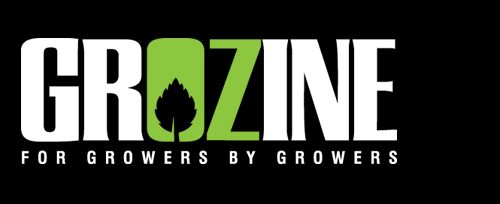
Modern Hydroponics Farming
By Jeff Edwards
From Grozine Issue 11
WANTED: New Age Farmers
The Future is NOW.
By Jeff Edwards
A drought is coming… but not the kind of drought you’re probably used to hearing about. Renewed interest and investment in controlled environment food and medicinal gardens has created an urgent need, a need that wasn’t properly addressed during previous peaks of interest in these emerging technologies. The drought that is about to occur is one of qualified and experienced facility operators, who happen to be the key to the success with modern hydroponics farming. Without successful crops, the business fails.
While the fundamentals of plant growth are constant, an experienced field grower will have a hard time adapting to the unique challenges and environmental considerations of a greenhouse or warehouse growing operation.
Hydroponic technology, feeding regimens, climate control, and pest control are just a few of the many differences that would be encountered. Just a few short years ago, it was almost impossible to find comprehensive educational opportunities that focused on Controlled Environment Agriculture (CEA) and/or hydroponic growth techniques. Traditional farmer preparation organizations such as 4-H and Future Farmers didn’t even include greenhouse and indoor technologies in their curriculums.
Today, however, a multitude of educational options are being offered to students and the general public, and special educational opportunities are being created for military veterans, prisoners preparing for a return to society, as well as programs for those with life challenges.
Many of the modern pioneers of hydroponics and CEA are products of the Controlled Environment Agriculture Center at the University of Arizona (http://ag.arizona.edu/ceac/). By far, the most established and respected educational institution offering certifiable courses, they also offer an assortment of short programs each year for the general public, which include hands-on focused training for greenhouse hydroponic crop production and live interaction with experienced professionals.
The CEAC at the University of Arizona is best known for its work developing CEA programs in Antarctica and for NASA, but their primary focus remains with practical and profitable greenhouse food and ornamental production.
Another educational pioneer in CEA and hydroponics is Cornell University in New York (http://www.cornellcea.com), conducting . They too offer occasional workshops for growers, teachers and the general public, and have also been involved with work for NASA.
Surprisingly, another educational leader in greenhouse production is the University of Florida (http://nfrec.ifas.ufl.edu/programs/hydroponic_greenhouse.shtml).While Florida is a leading state for field grown crops, they are also one of the top greenhouse states, many of which have converted to hydroponic growing techniques. As a result, the University of Florida has developed a wide-ranging program to help fledgling and established greenhouse growers in the state.
But you don’t have to just look at schools for educational opportunities. Many hydroponic businesses now offer educational training courses to interested parties. Often, the training offered by these firms is augmented with ongoing technical consultations… which can often spell the difference between success and failure.
CropKing (http://cropking.com) is one company that has been offering workshops and courses to the general public for many years.
Another way to gain valuable hands-on experience is by working with organizations such as Boswyck Farms (http://boswyckfarms.org), based in New York. Boswyck creates hydroponic farms of any size in any space for schools, social service and community-based organizations.
Archi’s Acres is another enterprise based in southern California that offers training for military veterans through the Veterans Sustainable Agriculture Training program (http://archisacres.com/page/vsat-program). More than 200 graduates have already completed their classes that cover topics that include hydroponics, drip irrigation, climate control, soil biology, greenhouse management, and more.
So if you’re interested in a rewarding career in the Controlled Environment Agriculture and hydroponic fields, there are many different educational opportunities available today that weren’t just a few short years ago.
Demand for greenhouse technical positions will be strong in the coming years, and experienced help will be scarce.
Clearly, those with education, training and/or experience will be the top contenders for the future jobs created in this fast growing industry.
Jeff Edwards has been a fixture in the hobby hydroponic industry since 1988.
Prior to joining, he was the Assistant Director at NORML. Jeff went on to found and operate Home Harvest Garden Supply as a retail and ecommerce concern for the next 24 years. He is a founding and current board member of the Progressive Gardening Trade Association, formerly known as the Hydroponic Merchants Association. More recently, he has been offering marketing, advertising, and web development services to manufacturers, distributor and retail hydroponic businesses. He also hates typos.






